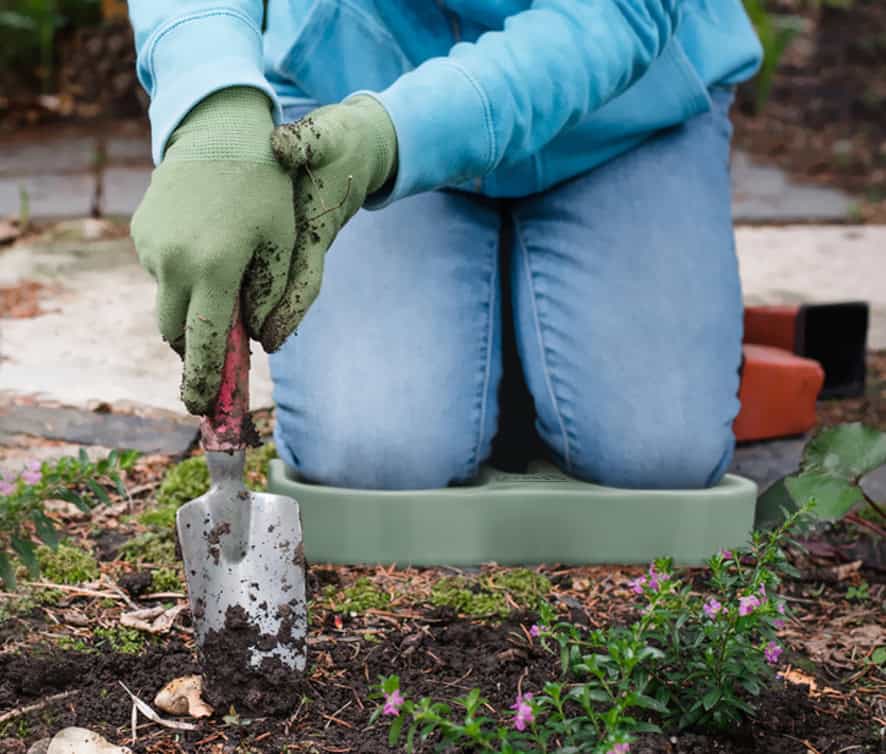Prevent Injury and Promote Better Knee Health

The knees are the wheels of the body. Investing in an extra-thick kneeling pad is one of the most effective ways for construction workers to protect their knees. These pads are designed to provide additional cushioning and support, reducing the pressure placed on the knee joints and preventing injuries. Here’s how extra-thick kneeling pads promote better health and safety:
- Pressure Reduction: An extra-thick kneeling pad distributes the worker’s weight more evenly across the surface, minimizing the concentration of pressure on the knees. This reduces the risk of developing conditions like bursitis and patellofemoral pain syndrome.
- Enhanced Comfort: Construction tasks often require workers to remain in kneeling positions for extended periods. The padding in extra-thick kneeling pads adds a layer of comfort, preventing discomfort and allowing workers to focus on their tasks without constant knee pain.
- Improved Posture: Extra-thick kneeling pads help maintain proper knee alignment and promote better posture. Proper alignment reduces strain on the joints, ligaments, and muscles, lowering the likelihood of injury to the knees, hips, and lower back.
- Vibration Dampening: Many construction jobs involve tools that create vibrations, such as jackhammers or power drills. An extra-thick kneeling pad can absorb some of these vibrations, preventing further irritation to the knees and reducing fatigue.
- Durability and Longevity: Extra-thick kneeling pads are built to withstand heavy use in demanding environments like construction sites. Their durability ensures long-term protection, even under the harshest conditions.
The Long-Term Impact of Kneeling on Hard Surfaces in Construction
Most construction work occupations require kneeling on hard surfaces so an extra-thick kneeling pad for workplace safety is essential. Their jobs can be physically demanding, often requiring long hours spent in awkward positions, such as kneeling on hard surfaces.
This prolonged kneeling can cause strain, pain, and, in many cases, long-term damage to the knees. Implementing proper protective equipment, such as extra-thick kneeling pads, is essential to safeguard the health and well-being of construction workers. This article explores the long-term effects of kneeling on hard surfaces, how extra-thick kneeling pads can prevent injuries, and reviews the best kneeling pads for construction and heavy-duty jobs.
Kneeling on hard surfaces for extended periods places immense pressure on the knees. In construction, workers are often required to kneel for tasks like flooring, tiling, plumbing, and carpentry. Over time, the cumulative effects of repeated pressure can lead to several health problems, including:
- Knee Bursitis (Prepatellar Bursitis): A common condition among construction workers, knee bursitis occurs when the bursa, a small fluid-filled sac that cushions the knee joint, becomes inflamed. Constant kneeling can cause irritation, leading to swelling, pain, and limited movement. This condition is often referred to as \”carpet layer\’s knee\” or \”housemaid\’s knee.\”
- Patellofemoral Pain Syndrome (Knee Cap Pain): Prolonged kneeling can wear down the cartilage under the kneecap, leading to pain, stiffness, and discomfort. This condition is especially prevalent in construction workers who engage in tasks that involve continuous pressure on their knees.
- Arthritis: Over time, the stress and strain placed on the knee joints through kneeling can accelerate the development of osteoarthritis. The constant impact on the cartilage and joint tissues can lead to their deterioration, resulting in chronic pain, swelling, and reduced mobility.
- Meniscus Tears: The meniscus is a piece of cartilage that cushions the knee joint. Frequent kneeling, especially on hard surfaces, can increase the risk of meniscus tears, causing pain, swelling, and locking of the knee joint. Recovery often requires surgery or extensive rehabilitation.
The Two Kinds of Kneelers
Left Section
This is the first inner div, with content stacked vertically and centered.
Right Section
This is the second inner div, also vertically aligned and centered.










